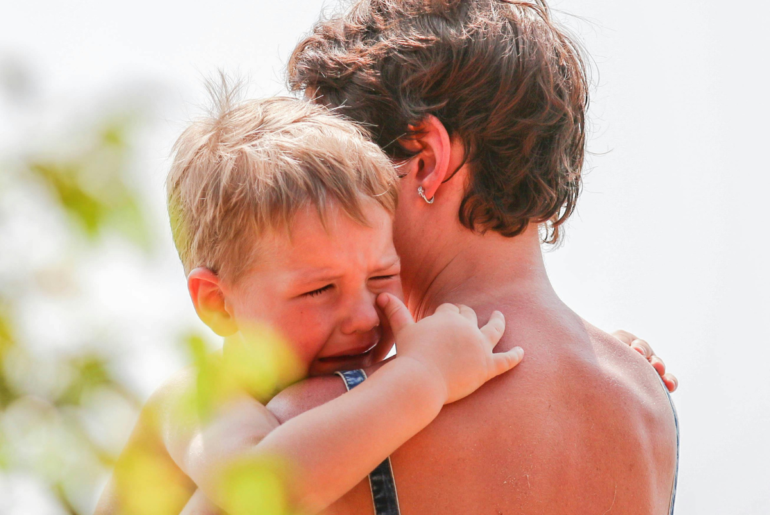Parents never intend to shame kids when they get hurt, but may find themselves saying things like, “Look what happens when you aren’t careful!” or “I told you not to climb on that.” Reactions like these often come from a place of frustration, particularly when a child ignores repeated warnings or instructions.
Sometimes what’s meant to be a warning or reminder to keep a child safe can actually make them feel worse, and does little to correct the behavior that led to the injury. If a child is injured, they’re most likely crying or upset, so their brains aren’t able to understand and process instructions or criticism until after we help them regulate those big emotions and calm down.
Shame also breaks down trust between a parent and child, and can do harm to a child’s self-worth over time. It isn’t always easy to respond with empathy, though. Often if a child gets hurt, parents might be having big emotions too—either because they’re scared it’s serious, or because they’re frustrated with the child for reacting strongly to what appears to be a very minor incident.
How should parents react to a child’s injury?
Taking a moment to stop and think before responding with fear or frustration can help ensure that you’re really helping your child and not adding to their negative feelings. One helpful habit to build in these moments is responding to your child’s crying with a hug, regardless of how serious their injury is.
Giving your child some comfort and affection before doing anything else can help them get the comfort and sense of safety they need to calm themselves down, and you’ll get that moment you need to regulate your emotions as well.
Once you and your child are both calm and collected, here’s what you can say in response to their injury—
- “The swing got all twisted and pinched your finger—that hurts!”
- “That probably felt scary! It’s okay to let your feelings out.”
- “Are you okay? That was a loud thump, it sounded like it hurt!”
- “Let’s take a minute and check your body together—what do you think you need right now?”
- “Let’s sit together until you feel better. I’m right here.”







